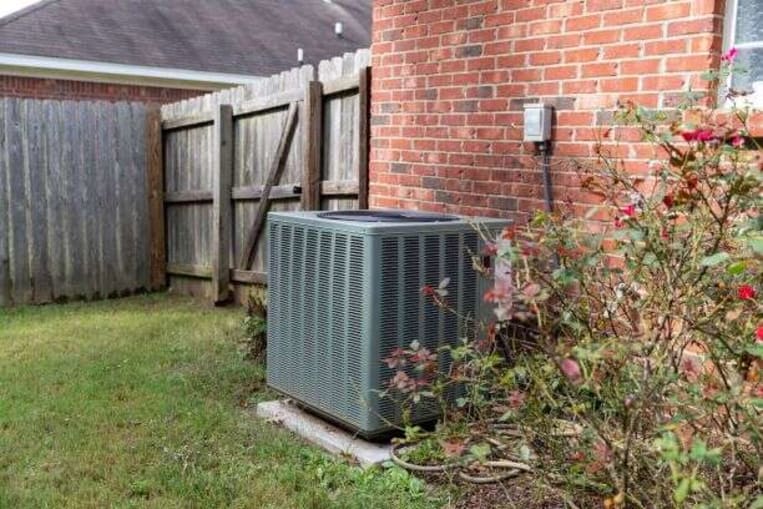
BBB Tip: Buying and servicing your heating and air conditioning (HVAC) systems

(Getty Images)
You may consider buying or servicing your existing heating and air conditioning system as the weather changes. The total cost of any appliance, including heating and cooling systems, has three components -- the purchase price, the cost of repairs and maintenance, and the cost to operate it. And with heating and cooling among the largest energy expenses in the typical home, you must maintain your system for efficiency.
Many things you should consider when hiring an HVAC contractor are consistent with what to consider when hiring any contractor. There are also considerations specific to heating and cooling.
Purchase and Installation
Before you buy, conduct an energy audit. This will help you detect energy waste, gauge the efficiency of your current heating and cooling systems, and determine if conditioned air is moving properly. Your utility company may offer free or low-cost energy audits or a do-it-yourself kit. You can also hire a specialist to do a more comprehensive energy audit (though this will probably cost you more).
You should also take steps to weatherize your home. Check the caulking, weather stripping, and insulation, and make necessary repairs. This may enable you to install a smaller, less expensive heating or cooling system to get the same results.
Compare the performance of different brands and models. Study the product literature. Will the product do the job? What's its repair history? Will it handle your needs today? Ten years from now? Does it fit your budget? How energy efficient is it?
Consider energy efficiency from the start. All products must meet minimum energy efficiency standards set by the Department of Energy in the United States and Natural Resources Canada. But many products beat the standard, use even less energy, and cost less to run. Ask your builder, installer, or home supply outlet about the EnergyGuide label and the fact sheets or product directories for each system you are considering. Compare the energy efficiencies and operating costs of competing models. Consider the purchase price and estimated operating costs when deciding what to buy. Sometimes you may be eligible for cash rebates or tax breaks from your energy provider for buying and using energy-efficient products. Be sure to check with your energy provider for more information.
Ensure any contractor you hire to install your system is an approved, authorized dealer by the manufacturer. If they are approved, it means they meet the requirements, and the manufacturer trusts them to install and represent the product.
Compare more than just cost. Check the size and rated efficiency of the equipment each contractor recommends. Ask each contractor to explain how the estimate of the required heating capacity and equipment was determined. Ensure the service and products of the contractor you use will provide the maximum benefit in comfort and value.
The contractor you choose should provide at least one call back free of charge after installation to check the system. See that this is in the written agreement. Many contractors also offer service contracts under which they will inspect and service your equipment once a year and provide emergency repair service. Before purchasing a service contract, weigh its cost and coverage against the cost and likelihood of future repairs. If your system is new, it probably comes with a warranty, which is included in the system's purchase price. If you sign a service contract, be sure it spells out what parts and services are provided and doesn't duplicate coverage you already have under the warranty. Because service contracts vary significantly in coverage, compare the coverage offered by several companies.
Is the guarantee or warranty disclosed? Is the entire job under warranty or only certain materials? Is labor included in the guarantee? Who will make good on the guarantee - the dealer or the manufacturer? Of course, remember the guarantee is only as good as the firm that offers it.
Maintenance and repair
Keeping your system well-maintained will prolong the system's life and save you money. So be sure to have it checked every year by a qualified technician. Spring or early summer are the best times for servicing cooling systems, while summer or fall are ideal for servicing your furnace. You can also do routine maintenance yourself by replacing disposable filters as needed or cleaning permanent ones.
Before calling a heating or cooling contractor, check what model system you own and the maintenance history for the system. Understand the license and insurance requirements for contractors in your state or province. Make sure the contractor meets all the requirements.
During a typical checkup for your cooling system, the technician should:
- Inspect and/or clean condenser and evaporator coils.
- Check voltage and amperage on motors.
- Check pressures for a proper refrigerant charge.
- Inspect and adjust blower components.
- Inspect the condensate drain; clean if necessary.
- Inspect air filters.
- Check thermostat calibration.
- Lubricate moving parts where necessary.
- Inspect safety controls where applicable.
- Check airflow.
- Inspect appropriate electrical connections.
- Start and operate the unit.
During a typical checkup for your heating system, the technician should:
- Inspect the thermostat.
- Check filters.
- Check furnace for cracked heat exchanger.
- Inspect burners and heat for rust.
- Check for gas leaks in the furnace.
- Check the vent pipe and draft diverter.
- Check vent clearance.
- Inspect for obstructions and proper clearance at the roof jack.
- Clean and adjust pilot assembly.
- Check and clean the blower, if required.
- Check the belt and adjust the tension.
- Lubricate bearings.
- Check flame rollout.
- Check manifold pressure when necessary and adjust.
- Check burner for efficiency and adjust when necessary
- Clean and adjust all safety cut-offs.
- Check high-temperature safety cut-off.
- Check fan control for proper setting.
- Check the complete furnace cycle.
When cleaning your furnace, you should also ask the contractor to test carbon monoxide. This odorless gas can be deadly, so you should consider installing a carbon monoxide detector to protect you between service visits.
If you need repairs, get multiple written estimates for the job. If you need to replace your system, the estimate should include a full description of additional work required to install ducts, registers, electric wiring, and any other work needed.
Energy efficiency
Being an energy-smart consumer means getting the most from the energy you use.
- Shade your room air conditioner from direct sun. This will reduce its workload. Clean the filters monthly and replace them as necessary to save energy and reduce dust and pollen. Lower the setting when you go out to reduce operating costs.
- Vacuum air vents, baseboard heaters, and radiators regularly to remove dust that reduces heating efficiency. Move furniture, carpet, or curtains that restrict their operation. If your baseboard heaters have movable deflectors or vents, open them in the winter and close them in the summer.
- Schedule annual tune-ups for your heat pump, furnace, or boiler. Check to see if your utility company provides this service.
- Hire a professional to seal and insulate leaky ducts and ensure that the airflow distribution system serving your heating or cooling equipment operates at peak efficiency.
- Check your attic, attic stairway, attached garage walls, and basement to ensure that you have proper insulation between conditioned and unconditioned spaces.
- Open your foundation vents each spring if your home has a crawl space under it. Close the vents in the winter.
- Prune back shrubs that may block airflow to your air conditioner or heat pump.
- Consider installing ceiling fans. The air circulation promotes cooling in the summer and heating efficiency in the winter.
- Consider investing in a programmable thermostat. That will create a comfortable temperature while you are home and help save you money while you are away.
Look for The Sign
When it comes to purchasing an HVAC system for your home, you should strongly consider purchasing from a BBB Accredited business. Opting for a BBB Accredited HVAC provider can bring numerous benefits that contribute to a positive customer experience and long-term satisfaction with your investment. You should consider companies with reliable and ethical practices, quality products and services, industry expertise and professionalism, a customer-centric approach, transparency, and support for trust in the marketplace. When you're in the market to purchase or service your HVAC system, always look for The Sign of a Better Business.
For more information
Find trusted, vetted HVAC contractors near you and get a quote.
See BBB's Home HQ for more tips.
Always look for businesses that follow BBB Accreditation Standards and BBB Standards for Trust.
BBB Serving Western Pennsylvania contributed to this article.
Related News
Still Need Assistance?
Contact Your Local BBB
Your local Better Business Bureau can assist you with finding businesses you can trust. Start With Trust®.
Additional Resources
Central Ohio BBB Business Podcast


